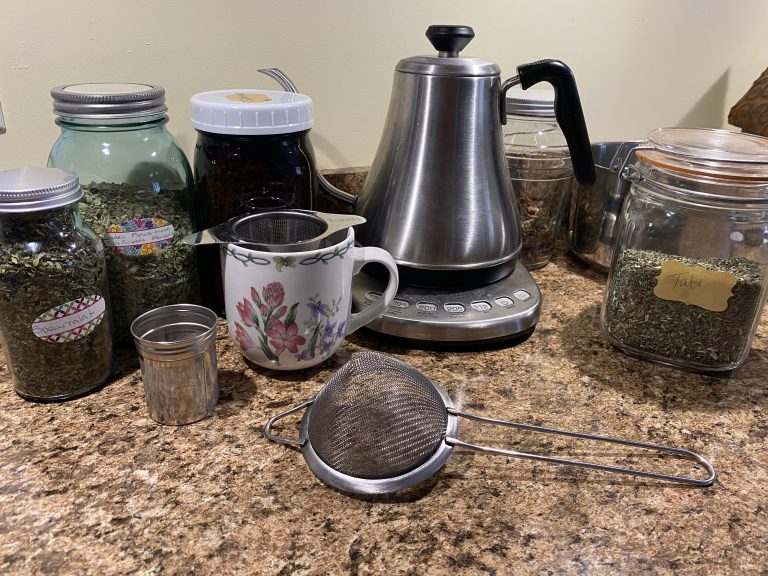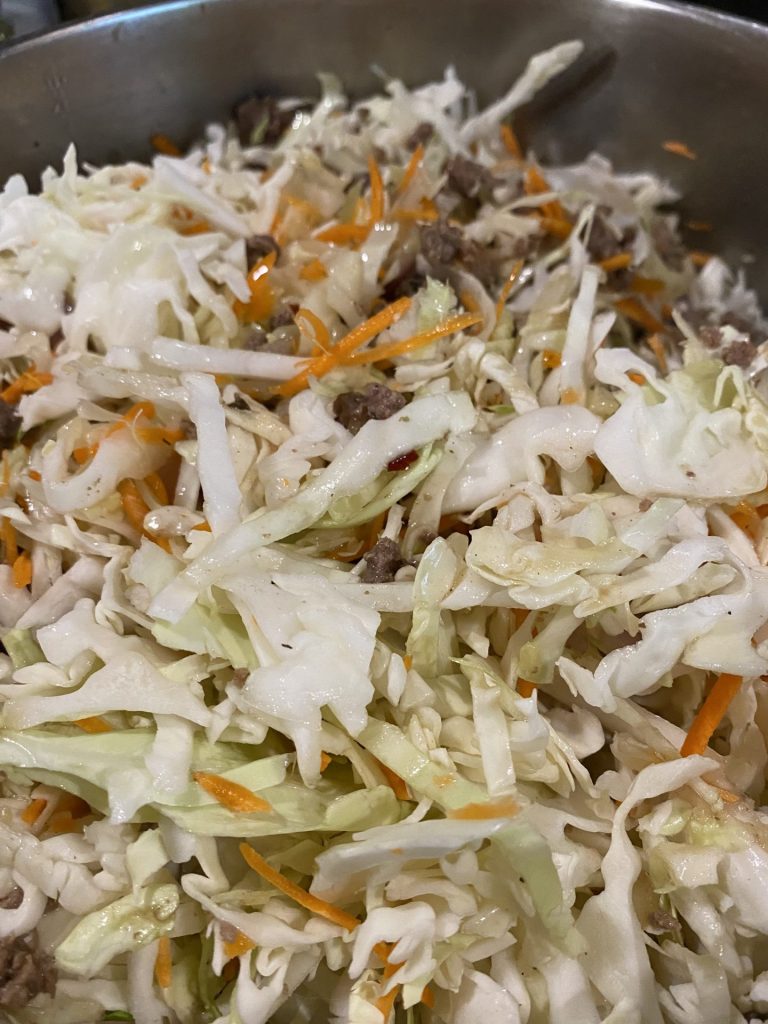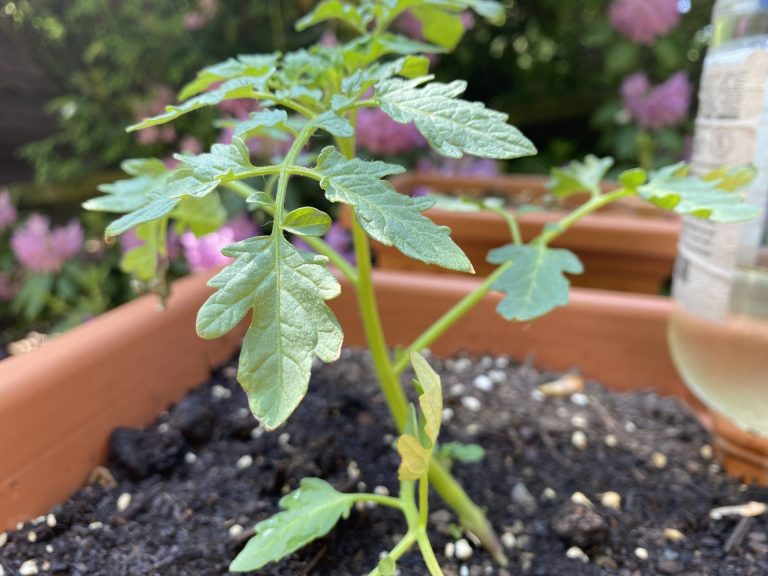Improve Gut Health
This post may contain affiliate links. View our disclosure policy here.
I don’t know how much you read about holistic health these days, but a big topic is gut health. There’s good reason for this! Gut health is really the root cause of , well, almost everything. Got good health? You probably have good gut health. Got some ailments or really poor health? You probably have some gut issues. Let’s talk about the ins and outs of good gut health and some simple steps to take to start improving your own gut health.
Digestion: The Basics
Before diving too much into gut health, let’s just take a brief moment to talk digestion. It may seem pretty basic but the process of digestion is actually rather complex.
Of course the beginning of digestion is the placement of the food in your mouth where saliva mixes in while you are chewing. Chewing should not be a fast action. It allows the saliva to mix in and allows your food to be broken down properly.
Swallowed food then goes down the esophagus. After entering the stomach,acid and enzymes from the pancreas and other body sites further break your food down.
Next, further broken down food enters the small intestine and then the large intestine. Most nutrient absorption happens here. What your body is able to and should use will cross the gut lining and move into your bloodstream.
Remaining products then travel through the colon and healthy bacteria further break down what is left. Waste is then eliminated.
This process is not fast. It takes at least 6-8 hours just for our food to pass to the small intestine. It can take up to 36 hours for the rest of the digestive process to complete.
What’s the Big Deal about Poor Gut Health?
The big deal is that when we have poor gut health, the digestion process does not work as it should. This leads to a whole host of possible problems and poor health in general.
Nutrients
The nutrients absorbed during the digestion process are used to fuel your body. Nutrients are necessary to stay alive and stay healthy.
When nutrients are broken down in the digestive tract, microorganisms inside your intestines work to deliver the nutrients to the body. Gut health is what is necessary for all of this to happen. Poor gut health means it is not happening. This is a detriment to your health.
Digestive symptoms
Poor gut health means digestion is and gets messed up. First indications, on the milder side, is that you may have stomachaches, bloating or trouble going to the bathroom (constipation and/or diarrhea).
Weakened immunity
Because your gut is a home for microbes and the microbes help with digestion and protect against bad bacteria, poor gut health affects this. Microbes get out of balance. This means weakened immunity, allergies, and possibly skin problems.
Gut-brain axis
It doesn’t stop there. Have you hear of your gut brain? It’s called that because your gut and brain are so tightly connected.
Your gut and brain communicate through something called the gut-brain axis. Poor gut health messes up the connection. This impacts your mood and mental health. Some signs of this may include more stress, anxiety and even depression.
Weight
Gut health is also directly connected to weight management. While it’s not the only factor, a healthy gut helps control your appetite and metabolism.
Inflammation
Your gut is even involved in processing hormones and managing inflammation. Inflammation is a key element in many if not all diseases. Hormones are also tightly connected to many health problems. The poorer your gut health, the more likely your hormone balance will be off and increases the likelihood to high inflammation and followed by chronic diseases.
In summary, poor gut health affects not only your digestion, but also immunity, mental health, weight, body inflammation and more.
What is the Root Cause to Poor Gut Health?
A holistic medicine approach or functional medicine practitioner would consider poor gut health to have several root causes. This approach takes into consideration that multiple factors and body systems are interconnected. It’s never about just one thing.
These root causes will always vary from person to person. We were all born with varying degrees of health and genetic factors. We all have different exposures to nutrients, environmental factors and more.
Here are common factors to consider when evaluating your own causes of poor gut health:
Diet
The types of foods you eat significantly affect your digestive system, nutrients you obtain and toxins that can cause damage. Diets high in processed sugar, unhealthy fats such as shortening and seed oils, and low amounts of fiber are detriments. These can and do disrupt gut balance and lead to more problems.
Stress
Chronic stress can also disrupt the balance of gut bacteria and increase body inflammation. Remember the mention of the gut-brain connection above? This connection means that stress can heavily influence digestion and the function of the gut.
Infections
A bacterial, viral, or parasitic infection can disrupt the balance of your gut microbes. This in turn causes inflammation. Thus these things affect the gut and can lead to potentially larger issues.
Medications
There are medications that can easily disrupt the balance of gut bacteria. The antibiotics you used for the above mentioned infections kill the bad bacteria but they also decimate the good bacteria you NEED for good gut health. Non-steroid anti-inflammatory drugs (NSAIDS such as Ibuprofen, Naproxen, Aspirin, Celecoxib,Meloxicam and others) also disrupt the balance of gut bacteria and affect gut health.
Only take antibiotics when they are truly necessary. Keep in mind that antibiotics are for bacterial infections. They are not for viral illness. If prescribed antibiotics, consider probiotic supplementation afterward.
Look into more natural remedies than NSAIDS. There are actually a number of more natural herbs and remedies that can address the needs NSAIDS are used for. See a professional herbalist or functional medicine for more support in this area.
Environmental Factors
Yes. Even exposure to environmental toxins can impact gut health. This includes pollutants as well as chemicals in your food, household and other surroundings.
Lifestyle Factors
Lack of daily physical activity, poor sleep, and other life choices such as drugs or smoking can affect your gut health.
Other Factors
Other factors to consider that may lead to poor gut health or, in some cases, occur because of poor gut health:
- genetics
- digestive disorders (IBS, IBD, and celiac disease)
- Dysbiosis (imbalance of the types of bacteria present in the gut)
- Leaky Gut (the intestines are too porous and allows undigested food particles and toxins to leak into your bloodstream, often triggering immune responses and inflammation)
- Food sensitivities and intolerances
- Chronic inflammation
Holistic and functional medicine practitioners emphasize a personalized approach to addressing these root causes.
These practitioners aim to identify specific factors contributing to an individual’s poor gut health and work on strategies to improve overall wellness, often through dietary changes, stress reduction, targeted supplementation, and lifestyle adjustments.
How Can I Work on Gut Health SIMPLY?
It’s not always easy to make the changes necessary to improve gut health overnight. And it’s not easy for me to know what YOU need for YOUR body. What I can do is present to you some wonderful holistic choices. It’s up to you to pick a couple that are easy to implement.
It’s important to note that functional medicine is a holistic approach that looks at the body as a whole and seeks to address underlying causes rather than just treating symptoms. We will discuss 10 ways to address gut health directly and indirectly.
1. Probiotics
A probiotic supplement can give your gut a boost of essential bacteria. Probiotic rich fermented foods are even better. Think sauerkraut, kefir, kombucha, and kimchi!
If probiotic supplement are your choosing, check out this brand on Amazon.
Note: In addition to probiotics, consider prebiotics. Eat foods rich in prebiotic fibers, such as garlic, onions, leeks, asparagus, and bananas. Prebiotics nourish the growth of beneficial gut bacteria.
2. Bone Broth
Bone broth is a superfood. It brims with collagen, gelatin, amino acids, and minerals. All of these soothe and help repair a damaged gut. You probably know you can make soups with bone broth. But did you know that many people simply sip the broth on its own much like you would any warm drink?
I love this book on Bone broth from a highly reputable source. Following the recipe in Nourishing Traditions is what I did when I first started making chicken bone broth. I add in seaweeds and other herbs to my broth now and love it even more.
If you want to purchase some good quality bone broth first, that makes a good start while learning how to make your own.
3. Stress Management
I know this is easier said than done. BELIEVE ME, I really do know. But chronic stress suppresses the immune system and contributes to permeability of the gut lining. Make time to learn new stress management techniques and give them a whirl. Try yoga, daily walking, deep breathing exercises, prayer and meditation, and other methods to destress.
Not sure where to start? As a book lover, that’s the first place I always look for information and ideas. The Relaxation and Stress Reduction Workbook may help.
4. Apple Cider Vinegar
Apple cider vinegar has been proven to have anti-yeast, anti-fungal, and anti-viral benefits. These benefits support the microbiome and immune balance. It also has the ability to improve digestion and helps those with heartburn.
The best form of ACV to use is products like this one which is ACV in its natural raw and unfiltered form. The ‘mother’ can be seen as a sediment at the bottom of the bottle. Making salads using the vinegar as a dressing in its natural state is one way to use it. Another way is to simply take 1-2 tbsp. mixed in a few ounces of water or juice each day.
5. Digestive Bitters
Herbs are a wonderful way to improve gut health. Digestive bitters are herbs with a bitter taste. There’s a lot of these! Some bitters include dandelion, burdock, ginger, and even chamomile.
There are many ways to work with bitters. Fresh herbs in a salad with a nice vinegar or creamy dressing are delicious! Fresh herbs can also be added to bone broth, soups, and other dishes. You can also work with these herbs in tea or as a tincture. One tincture that I love is this one.
6. Bathroom Posture
Sounds bizarre, right? But actually the way the average person (at least in this country) sits on the toilet can actually cause problems. Research has shown that squatting to use the bathroom is more natural and efficient. A squatting position allows our bodies to empty our bowels more fully, helping to lessen digestive disturbances.
In our culture, it’s not very common that we have ‘squatty potties’, but just elevating your legs while you sit can help you obtain your goal. You can just keep a stool in the bathroom for this purpose. They actually make some but you can use any stool or object you have at home that is about this size.
7.Eat slowly
Eating too quickly allows a lot of air to pass while consuming your food. This adds stress to the digestive system. When you eat rapidly, you may not chew your food thoroughly, which can place extra strain on your digestive system.
Be kind to your digestive system. Slow down. Enjoy the flavor. Chew thoroughly.
8. Healthy Fats
Here’s one that not many consider.
A lot of common advice heard is to increase fiber. This does work for SOME people but not everyone. Sometimes extra fiber can impair mineral absorption. Minerals such a magnesium are essential for overall health and actually works to relax the intestinal wall, keeping your digestive system moving smoothly. Impaired mineral absorption may stop this.
Healthy fats are, as I’ve written in this post, essential. Furthermore, because fat is slippery, it actually helps things in the digestive system move along. Consider, if you haven’t already, switching your cooking fats to healthier fats such as coconut oil, grass-fed butter, and lard from grass fed animals. Olive oil is great too as long as you are not cooking with it. Keep it for salad dressings!
9. Sleep & Exercise
Believe it or not, sleep and exercise both play significant roles in influencing the health of the gut. These are not things you hear about frequently but they can impact the composition of the gut microbiome, the functioning of the digestive system, and overall gut health.
Sleep disturbances lead to imbalance of the types of bacteria in the gut. Sleep deprivation can also trigger inflammation in the body and this includes the digestive system.
Take care of your sleep habits.
Regular exercise has also been associated with a more diverse and a balanced gut microbiome. Exercise also tends to have anti-inflammatory effects on the body which, of course, includes the gut.
Because physical activity improves blood circulation, this enhances nutrient absorption and the health of the gut lining. Exercise also helps regulate blood sugar levels. Stable blood sugar levels are associated with a reduced risk of gut-related issues.
Exercise can also be used as a stress management tool as mentioned above. Lower stress contributes to a healthier gut environment.
Combining the addressing of both sleep and exercise together can heighten the positive effects on your digestive system.
10. Elimination Diet
Sometimes digestive symptoms are from food intolerances. While there are rather expensive tests a functional medicine doctor can order to find out what your sensitivities and intolerances are, another way to figure it out is a good elimination diet.
In order to heal your gut, it’s imperative to stop eating foods that may be irritating to you. An elimination diet allows you to remove potential problem foods for an extended period of time, followed by slowly reintroducing those foods one at a time while keeping close monitoring of possible symptoms.
Check out books on the Whole30 or their website for more information.
Optimize Gut Health
To optimize gut health, aim for a balanced approach that includes some or all of the above areas. The more you are able to combine together, the better the chances are to see improvement.
My Wellness Basket & Gut Health
The approaches I mention in this article are by no means the only things one can do, even holistically, to heal gut health. I chose ten possible approaches based on ease and cost effectiveness. This blog is about approaching holistic health simply. It’s not meant to overburden or overwhelm you.
Remember, imperfect progress is still progress. But do try to incorporate as many of the suggestions as possible. The more you are able to add to your good habits, the more your gut has a chance to respond with better results.
Start out slow. Pick out one or two things to try. Do what you can to have success with those one or two things. Once you form a habit, pick another to add on.
If you continue to struggle with gut health, consider meeting with a holistic or functional medicine practitioner who can guide you on what may work best for you.
Please remember: I am not a doctor or licensed healthcare provider. This post, as are all others on My Wellness Basket, are for educational purposes only. Please see my disclaimer page.
Do you suffer from digestive problems? Have you tried any of the above approaches to healing gut health? Are there others you have tried that weren’t listed? Tell us about them in the comments below!








I found this article to be very enlightening, even an eye opener. The gut is the foundation of many health issues and like everything else, it requires care to remain healthy.
I hope you will add some of the suggestions to your daily routine! Happy Health!
I never realized how important gut health was until after having children. Your gut health plays a major role in yout health & wellness. Thank you for providing these realistic tips that can be added into your every day life.
I hope you gained some insight into other things to improve your own gut health!
This is just an informative article, I’ve been doing some research on gut health and this information is so enlightening and well written. Thank you!
I hope you gained some insight and ideas on how to improve your own gut health!
omg, I needed this so badly. My face is breaking out. Thank you for all your pointers. Many lifestyle and dietary changes I can changed based on what you wrote.
Gut health may indeed be a key factor. I hope some of the ideas help you!
Having recently been diagnosed with IBS, this was a great article. Thank you for sharing
I’ve been there! I hope some of the ideas listed help you!
Thank you for this informative post! I’ve suffered from gut issues since childhood. I’m going to try some of your suggestions. Just two days ago I bought lots of cabbage to juice in an effort to help my gut. I pinned so I can refer to your information in my journey to heal my gut.
I have had many gut issues since childhood as well! I hope you find some things here to help you.
This is fabulous information. I’ve always struggled with gut issues and this has been incredibly helpful.
I’m glad you found the article helpful. I hope you will try some new things. Let me know how it works out!